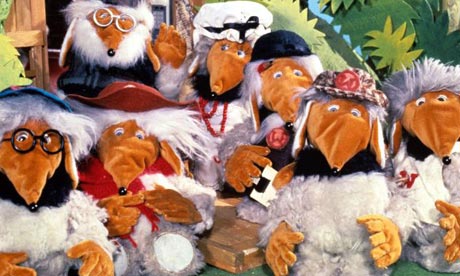
I find it very easy, as you may have noticed, to moan. I am aware that a relentless stream of criticism might tax everyone. So today I wanted to talk about some good news. Bathwick St Mary's, my childrens' school has just been voted the best primary school in the country and for once it seems like the accolade is well deserved. Now it might not be to everyone's taste but in my experience the school sums up a lot about what I think is important about education and teaching. So what makes a good school?
Bathwick won the award for it's exceptional record at Key Stage 2 exams over a number of years, however, Mr Burnett, the Headmaster told The Sunday Times: “We celebrate achievement and academic results but what matters every bit as much is that our children leave us as well-rounded individuals on course for happy, fulfilled lives. I live and breathe this job – it is a privilege because what we are doing here can change a child’s life for the better for ever.” I agree, the results are great but their focus on producing independent young people who have learnt to learn is a harder task and a greater achievement. That is a real education.
When I was looking for a school for my children, I asked Mr Burnett, what was Bathwick's secret? He told me he believes a school should be a learning environment for everyone: children, staff and parents. It was inspiring stuff. The expectations on performance therefore extend across the whole school and there is certainly a bearable but conscious pressure for everyone in the school community to do just a little bit more. The school sets high standards.
When I was a young boy, my mum set high standards as well. The standards of the 'genteel' working class. High expectations about behaviour, a spotlessly clean house, smart clothes for public appearances and a slightly patronising attitude to anybody she knew who did not match up. This did not extend to anybody from a 'posh' background. In mum's eyes, they set their own rules - rules that she could never fully understand but that she knew, with every aspirational breath, were superior to her own. A confident, gossipy woman when chatting to other women on our street - just a word from a teacher or a doctor, pretty much the poshest people we ever met, would reduce her to a state of awed subservience.

Unfortunately, my house is a mess and my general appearance is unruly to say the least. However, her standards gave me a good start and I did take to heart two things from my mum's prejudices. 'Posh' people got an education and ''posh' people got away with more stuff because they were educated. Instead of calling it anti-social, you could call it bohemian or relate it to something Evelyn Waugh had once written. My long-term lesson, for good or bad was that 'posh' people had more fun, experienced more things and had more variety in their lives. Whatever my motive that became the focus of my aspirations.
Education, therefore, has always been close to my heart. In one way or another I have spent my whole life 'in education'. From the first inspiring Topsy and Tim stories, through school, several universities, LEA and political jobs, a period as a school governor and currently working for exam boards, I have had almost pathological attachment to education. 20 years ago, despite being at a Grammar school, expectations were low and I didn't set myself high enough standards. For a naturally bright but incredibly lazy boy with parents who had never taken a public exam, it was far too easy to coast. Many talented and bright kids fell out of the system completely. What a waste.
So, how is Bathwick St Mary's award good news to anyone not related to the school? My limited experience of schools meant that I thought Bathwick was setting truly exceptional standards. However, in the last month or so I visited a large number of schools, from private to bog standard comps in different parts of the country. Schools facing a much greater variety of challenges than a Bath primary school. I've had the opportunity to observe classes, talk to staff and pupils and even take part in some lessons. It struck me that the things that had grabbed my attention when I visited Bathwick were actually evident in all the schools I visited. Nowadays, it seems, there are less places to hide.

Things have changed a lot in the classroom since my day. I observed extremely well-trained and committed teachers using a variety of traditional and IT methods to relate their knowledge. The structure of the lessons and the syllabus' seemed to engage the children. Despite the large numbers of pupils in some classes, teachers kept everyone on their toes and the children seemed engaged and capable of performing an impressive level of analysis for their age and 'ability'. High standards were being set and they seemed to be underpinned by the national curriculum, excellent teaching and consistently high expectations.
Now class please don't be cynical. Poor mistreated schools. No matter what they achieve, there are always Cassandras predicting tales of educational woe due to easier exams and falling standards. They simply can't win. Of course there are still massive problems, especially within some big cities, but there is a lot of very good work going on out there. Polly Toynbee's book 'The Verdict' concluded that education had been one New Labour's genuine success stories. You can't make children succeed but if a child wants to succeed they probably have a much better chance than 20 years ago.
Education unlocks doors. For some children it is the only key they will ever have.
(Answers on the comments board about what the Wombles can teach us)
Please pass this on to all your friends!











